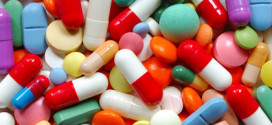Caffeine, something that you probably consume a lot of without realising, found in energy drinks, coffee, tea and some of the other soft drinks people drink. But have you though about using it as a supplement?
Caffeine is a stimulator of the central nervous system, it does so by releasing adrenaline within the body. This is the fight or flight hormone which has several physiological effects over the body, the main one is that it forces the body to go into overdrive which would explain why it can increase metabolism and as a result fat burning.
What’s more impressive is that newly published research has shown that caffeine is capable of facilitating glycogen within the muscle needed for short bursts of energy. It would then replenish the used glycogen back into the muscle soon after the workout which helps the person recover quicker.
It’s been claimed that caffeine helps in:
Increasing strength during workout
Increasing metabolism
Burning fat
Improving endurance
Aiding recovery
Improving coordination
Caffeine has been shown to help weight lifters lift more while under its effects. It seems that it can give a significant boost to strength to anyone regardless of their base level.
There is no doubt that caffeine increases metabolism, research has shown the increase can be by upto 10%. However what was noticed was that these effects wear out soon after. But is it enough to burn fat? Well there research within this top is conflicting. Over the short term, caffeine can burn fat, however it seems to creep back on even with continued supplementation and cardio training.
Caffeine has been shown to improve endurance by facilitating the glycogen stores within the muscle. Most studies find that caffeine increases endurance by 25%, which is rather impressive!
It is advised that caffeine should be taken after a workout session too to help with recovery. This is because the caffeine would help replenish the glycogen stores within the muscle thus allowing it to bounce back quicker. What caffeine does is it takes the carbohydrates eaten after a workout session and uses the broken down results to help refuel the muscle that stack it on as fat. A recent study found that caffeine drastically improved glycogen storage by 50-60%.
Caffeine’s effect on the central nervous system leads to an improved sporting performance since it increases cognition and coordination.
So how much caffeine should you take? Well it’s advised that each serving should be 0.45–1.36 mg caffeine per lb (1–3 mg per kg) of body weight. One serving should be 30-60 minutes before a training session or a competition and the other serving should be straight after the workout. You can drink more or less depending on how it makes you feel.
Side effects
In general, people have different levels of tolerance to caffeine, if one takes too much, symptoms like nervousness, shaking, and anxiety are fairly common. If you have never drank anything in the past containing caffeine such as coffee, tea (Black or green) then you’re advised to take only a small amount to start of with to see how you cope.
Overall, I think caffeine is a good supplement for short term results, however it’s not ideal for the long term since the results don’t last. This however doesn’t stop me, and shouldn’t stop you from taking a cup of coffee or so 30-60 minutes prior a training session to help you get the most of it.
References:
Bucci, L. (1993) Nutrients as ergogenic aids for sports and exercise. Boca Raton, FL:CRC Press.
Chad, K. and Quigley, B. (1989) The effects of substrate utilisation, manipulated by caffeine, on post-exercise oxygen consumption in untrained female subjects. European Journal of Applied Physiology. 59, 48-54.
Costill, D. L., Coyle, E. F., Dalsky, G., Evans, W., Fink, W. and Hoopes, D. (1977) Effects of elevated plasma FFA and insulin on muscle glycogen usage during exercise. Journal of Applied Physiology. 43, 695-699.
Costill, D. L., Dalsky, G. P. and Fink, W. J. (1978) Effects of caffeine ingestion on metabolism and exercise performance. Medicine and Science in Sport and Exercise. 10, 155-158.
Doherty, M. (1998) The effects of caffeine on maximal accumulated oxygen deficit and short-term running performance. International Journal of Sport Nutrition. 8, 95-104.
Ivy, J. L., Costill, D. L., Fink, W. J. and Lower, R. W. (1979) Influence of caffeine and carbohydrate feeding on endurance performance. Medicine and Science in Sports and Exercise. 11, 6-11.
McNaughton, L. (1987) Two levels of caffeine ingestion on blood lactate and free fatty acid responses during incremental exercise. Research Quarterly in Exercise and Sport. 58, 255-259.
Spriet, L. L. (1995) Caffeine and performance. International Jounal of Sport Nutrition. 5, S84-99.
Wiles, J. D., Bird, S. R., Hopkins, B. A. and Riley, B. A. (1992) Effect of caffeinated coffee on running speed, respiratory factors, blood lactate and perceived exertion during 1500-m treadmill running. British Journal of Sports Medicine. 26 (2), 116-120.
Burke LM. Caffeine and sports performance. Appl Physiol Nutr Metab 2008; 33 (6): 1319-34
Jacobson BH, Weber MD, Claypool L, Hunt LE. Effect of caffeine on maximal strength and power in élite male athletes. Br J Sports Med 1992; 2 (4): 276-80
Acheson KJ, Zahorska-Markiewicz B, Pittet P, Anantharaman K, Jequier E. Caffeine and coffee: their influence on metabolic rate and substrate utilization in normal weight and obese individuals. Amer J Clin Nutr 1980; 33: 989-97
Malek MH, Housh, TJ, Coburn JW, Beck TW, Schmidt RJ, Housh DJ, Johnson GO. Effects of Eight Weeks of Caffeine Supplementation and Endurance Training on Aerobic Fitness and Body Composition. J Strength & Cond Res 2006; 20 (4)
Bell DG, McLellan TM. Exercise endurance 1, 3, and 6 h after caffeine ingestion in caffeine users and nonusers. J Appl Physiol 2002; 93: 1227–1234.
John L. Ivy, Harold W. Goforth, Jr., Bruce M. Damon, Thomas R. McCauley, Edward C. Parsons, and Thomas B. Price/ Early postexercise muscle glycogen recovery is enhanced with a carbohydrate-protein supplement. J Appl Physiol, Oct 2002; 93: 1337 – 1344.
 Supplement Judge Unbiased Supplement Reviews – Do they really work??
Supplement Judge Unbiased Supplement Reviews – Do they really work??




